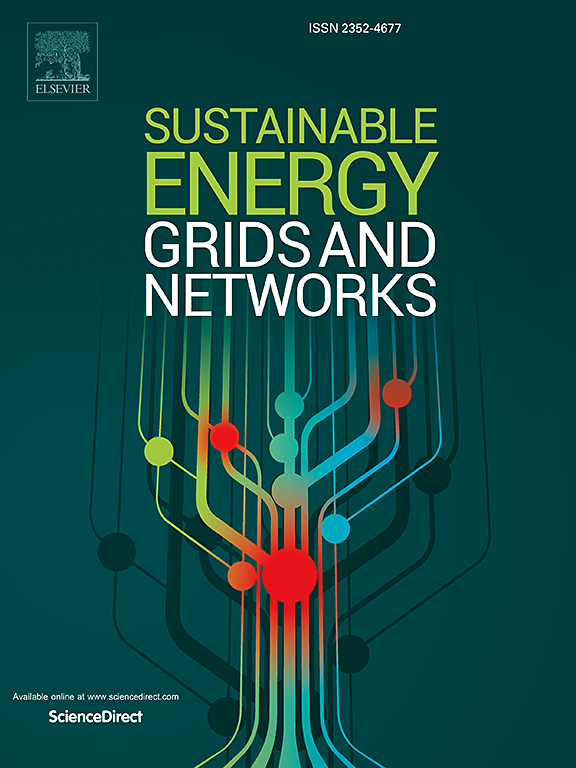Multi agent framework for consumer demand response in electricity market: Applications and recent advancement
IF 4.8
2区 工程技术
Q2 ENERGY & FUELS
引用次数: 0
Abstract
Smart grid can offer load sharing and utilize distributed energy resources to reduce energy consumption costs and potentially earn revenue through energy services. Information and communication technologies (ICT) in the smart grid have opened a lot of possibilities for developing residential Demand Response (DR), which is essential in smart grid applications. DR is a technique that enables customers to participate in the operation of the electricity grid either by shifting or reducing the loads during peak time in response to price signals. The DR program helps utilities ensure power balance and lower the cost of electricity in both wholesale and retail electricity markets. Multi-Agent System (MAS) is a distributed artificial intelligence technique that can be used for the implementation of DR programs in the electricity market. This paper aims to provide a comprehensive review of the MAS application for the implementation of DR programs in electricity markets. This paper highlights a review of 264 research papers that discusses MAS-based DR, MAS-based DR in the electricity market, and various platforms for the development of MAS-based DR. It also summarizes the potential of MAS in other applications of the smart grid along with the MAS research challenges, benefits, constraints for implementation and future research directions in this field.
电力市场消费者需求响应的多代理框架:应用和最新进展
智能电网可以提供负荷分担,利用分布式能源资源来降低能源消耗成本,并可能通过能源服务赚取收入。智能电网中的信息和通信技术(ICT)为开发住宅需求响应(DR)提供了很多可能性,而住宅需求响应在智能电网应用中至关重要。需求响应(DR)是一种使用户能够参与电网运行的技术,用户可以在用电高峰期根据价格信号转移或减少负荷。DR 计划有助于电力公司确保电力平衡,降低电力批发和零售市场的电力成本。多代理系统(MAS)是一种分布式人工智能技术,可用于在电力市场中实施 DR 计划。本文旨在全面综述 MAS 在电力市场实施 DR 计划中的应用。本文重点综述了 264 篇研究论文,其中讨论了基于 MAS 的电力需求评估、电力市场中基于 MAS 的电力需求评估以及开发基于 MAS 的电力需求评估的各种平台。本文还总结了 MAS 在智能电网其他应用中的潜力,以及 MAS 在该领域的研究挑战、优势、实施限制和未来研究方向。
本文章由计算机程序翻译,如有差异,请以英文原文为准。
求助全文
约1分钟内获得全文
求助全文
来源期刊

Sustainable Energy Grids & Networks
Energy-Energy Engineering and Power Technology
CiteScore
7.90
自引率
13.00%
发文量
206
审稿时长
49 days
期刊介绍:
Sustainable Energy, Grids and Networks (SEGAN)is an international peer-reviewed publication for theoretical and applied research dealing with energy, information grids and power networks, including smart grids from super to micro grid scales. SEGAN welcomes papers describing fundamental advances in mathematical, statistical or computational methods with application to power and energy systems, as well as papers on applications, computation and modeling in the areas of electrical and energy systems with coupled information and communication technologies.
 求助内容:
求助内容: 应助结果提醒方式:
应助结果提醒方式:


